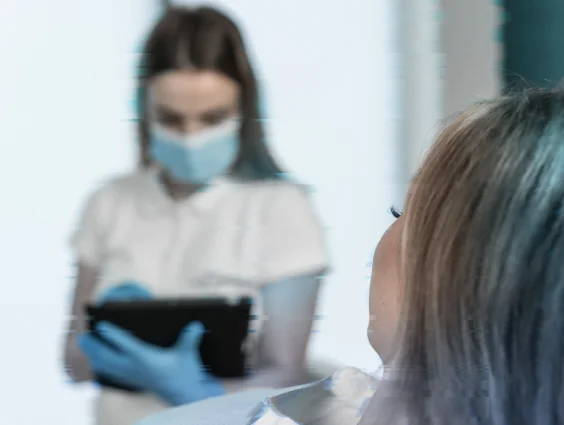







In recent years, cybersecurity threats have increasingly targeted healthcare organizations, and now it seems hackers may be turning their attention to a more specific group of providers. The recent warning from the FBI highlights a new, disturbing trend: cybercriminals are actively targeting dental offices, aiming to exploit vulnerabilities in their security protocols.
Here’s what you need to know—including steps you can take to protect your dental practice.
On May 6, 2024, the American Dental Association (ADA) received a crucial alert from the FBI regarding a credible cybersecurity threat specifically directed at oral and maxillofacial surgeons. No incidents had been reported at the time of the alert, but the FBI's proactive warning shows just how serious the threat actually is.
Although this current threat is focused on dental surgeons, the FBI is confident the practices of general dentists and other specialists will eventually be targeted. It’s safe to say there’s now an urgent need for comprehensive preparedness across the entire dental community.
Cybercriminals see dental practices as prime targets due to perceived gaps in cybersecurity measures compared to larger healthcare entities. Many practices may lack robust security systems and employee training, making them vulnerable to not just sophisticated cyberattacks but also phishing attacks through email, social media, and messaging apps.
In other words, attackers know that just one misstep from a single employee could make the entire network vulnerable. The FBI even provided a scenario where the attacker may pose as a new patient to obtain new patient forms online and then ask to email the completed forms as an attachment, which actually contains malware that is then activated after opening.
Ultimately, the wealth of sensitive patient data stored within dental office systems presents a pretty lucrative opportunity for hackers—and one they clearly see as achievable at the moment.

The ramifications of a successful cyberattack on a dental practice can be just as devastating as attacks on other healthcare sectors. The overall costs of recovery—both financial and reputational—can be substantial and linger for years.
Beyond financial losses and disruptions to the business, breaches can lead to compromised patient records, potentially violating HIPAA regulations. The fallout includes damage to the practice's reputation, loss of patient trust, and hefty fines for regulatory non-compliance (penalties for HIPAA violations can be very costly, ranging from $100-$50,000 per violation).
The FBI’s warning is definitely an immediate call to action for dental practices to protect themselves, but don’t expect the threats to subside anytime soon. Dental practices should think long-term and adopt proactive cybersecurity measures to safeguard against cyber threats, such as strengthening security protocols, regularly backing up data, and developing an incident response plan. But with so many attacks originating from phishing tactics that target employee endpoints like smartphones, tablets, and personal computers, educating and training staff to prevent attacks is equally important—if not more.
The truth is today’s employees are often the first line of defense against cyber attacks. Security awareness training is crucial for empowering dental practice staff to identify and respond effectively to cyber threats. Dental practices should conduct regular security awareness training sessions for all employees to recognize phishing attempts, malicious links, and other common methods to significantly reduce the risk of falling victim to cyberattacks.
As cyber threats continue to evolve, dental practices have to be extra vigilant in safeguarding their operations and patient data. By adopting more robust and comprehensive cybersecurity measures, dental practices can mitigate the risk of cyberattacks and uphold the integrity of their services.
Take the first step towards bolstering your practice's cybersecurity defenses with security awareness training. Huntress Security Awareness Training utilizes compelling, narrative-driven episodes managed entirely by experienced cybersecurity professionals. These experts oversee every aspect, from lesson creation to phishing simulations, ensuring your workforce gains the critical knowledge and capabilities needed to combat advancing cyber risks. With captivating storytelling crafted by award-winning animators, Huntress SAT effectively engages users, ensuring the retention of essential security principles.
Get insider access to Huntress tradecraft, killer events, and the freshest blog updates.
